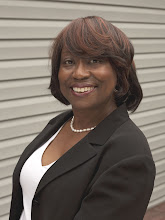

By Anna D. Banks, GCDF
One of the principal questions facing retirees, or people planning for their retirement, is what to do with the rest of their lives. After all, people of the retiring age are no longer as old as the previous generations. Your retirement can be a time of great purpose and of indulging passions. Life, far from being over, is venturing into a new interesting path, leading to greater meaning and productivity.
Space for a new career in your pre-retirement planning stage, enables you to decide on the great question: “what next”. A growing number of CEOs, doctors, business owners, high ranking executives and so on, are charting their “Plan B” and deciding their new careers after retirement. If you are in the early stages of pre-planning your retirement, consider a new career option. There is, of course, more than one reason for doing so. In this age of inflation, and longevity, you are definitely likely to need much more money to retire than you may initially think. Under these circumstances, leaving your own business or company can be a major decision if you have no idea of what to do next.
To keep busy, or to supplement the retirement income, most executives or professionals are willing to continue their lives of stress simply because they have no clue about what they could do instead. They feel as if there is no other choice or work option. It is very conceivable that they would need the equivalent salary, but they may not be able to come up with what else to do to earn that income. This only leads to poor decision making, misery, and wasted years. In other cases, change may be forced by lay-offs, mergers and so on.
It is a common perception that one has to continue in the chosen career path that one has pursued all along. Professionals tend to think of in terms of that single role. People often forget that almost everyone is multi-faceted, talented, and there is nothing to prevent a career change. Making the right choice for a new career can be difficult. This is all the more reason why most people should include a new career in their pre-retirement planning. Consider careers that include, or can be derived from your other interests, hobbies, or talents. Lower stress levels, part time involvement and more flexibility is eminently achievable, all you have to do is plan ahead.
If you are, and have been a fairly successful individual in your career so far, it is all the more essential to create a plan for your post retirement career. Set your goals in advance, define a career path that you want to follow, consider issues such as relocation, explore flexible work options like consulting, volunteering, or social and community work. If you feel the need, consult an expert who will be able to help you plan the move to your second career. Alternatively, you can go online to search for the right tools that will help you to discover and define your passions and interests and make a positive career change.
© Anna D. Banks, GCDF
ANNA D. BANKS, GCDF is an adjunct professor at Essex County College, career development and marketing coach, speaker, and author. Anna helps individuals design a game plan for an extraordinary career or business. Since 1996, Anna has helped hundreds of job-seekers, managers, business owners, and sales professionals achieve career success. For more information send an email to Anna@AnnaBanks.com.
_______________________
Author's Note:
Do you have any questions about career development or lifestyle changes for Baby Boomers, which you think others, like you, would want to know the answers? Please post your question this site or email your questions to me at Anna@AnnaBanks.com.







